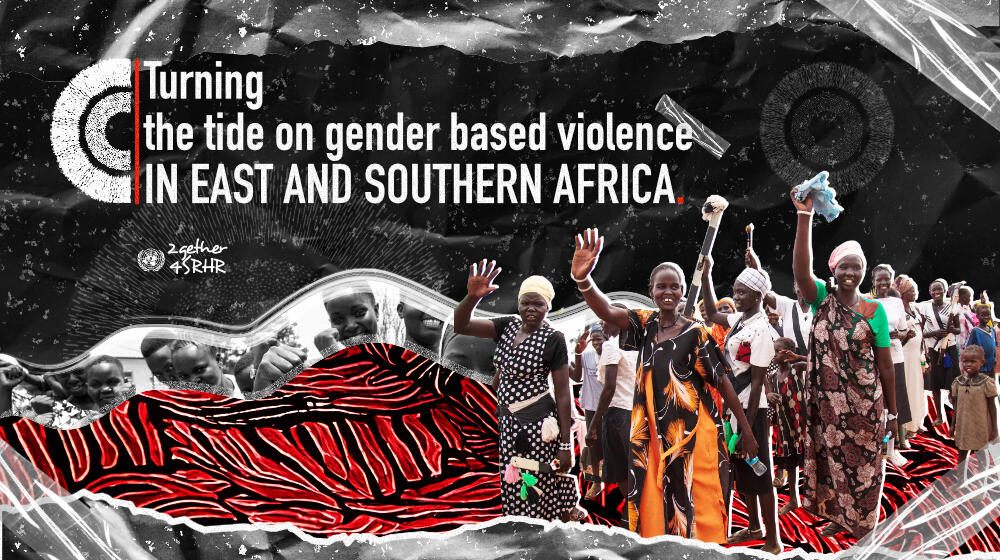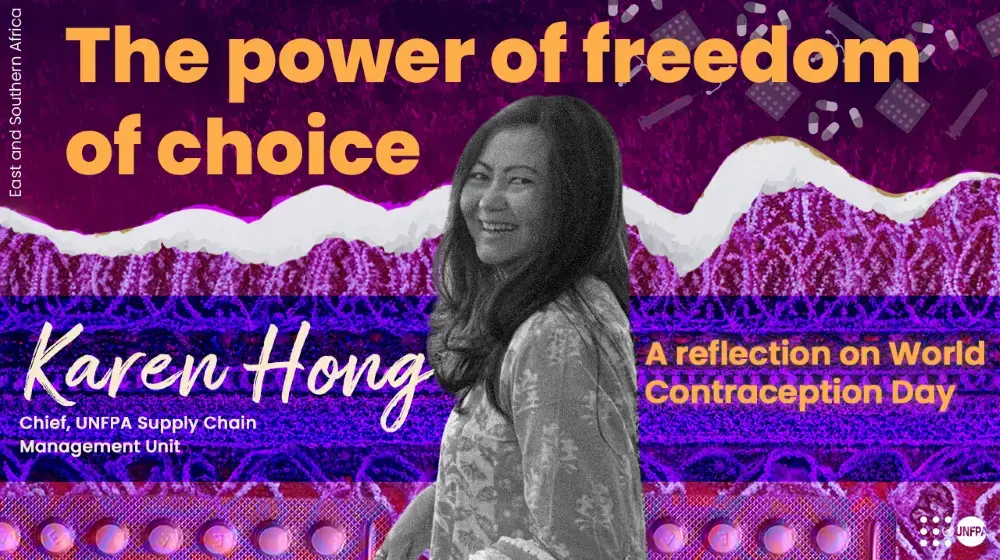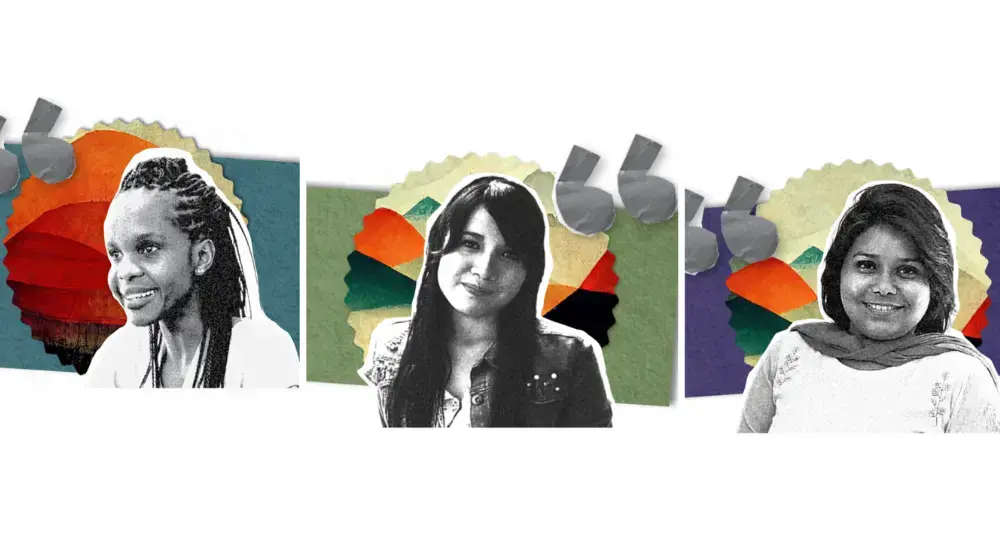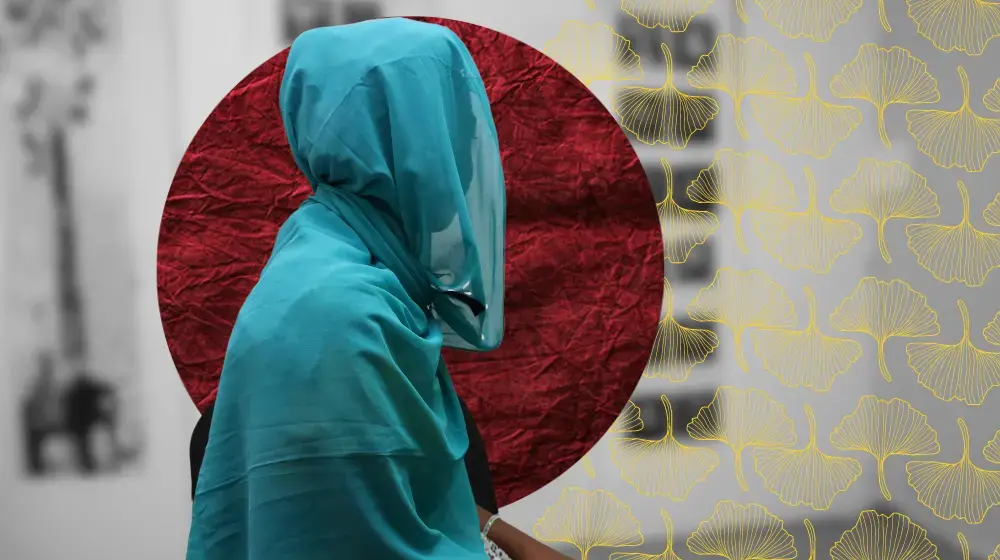Joint op-ed by Eastern and Southern Africa Regional Directors: Ms. Anne Githuku-Shongwe, UNAIDS; Ms. Lydia Zigomo, UNFPA; and Ms. Etleva (Eva) Kadilli, UNICEF
Janeth, a nurse in Tanzania, sees the toll of gender-based violence every day. Caroline, a young advocate in Malawi, educates her peers about abuse, hoping to break the cycle. Eric, a peer educator in Uganda, works tirelessly to improve HIV care in his community. These are the faces of resilience, working against the odds to build a better future for East and Southern Africa.
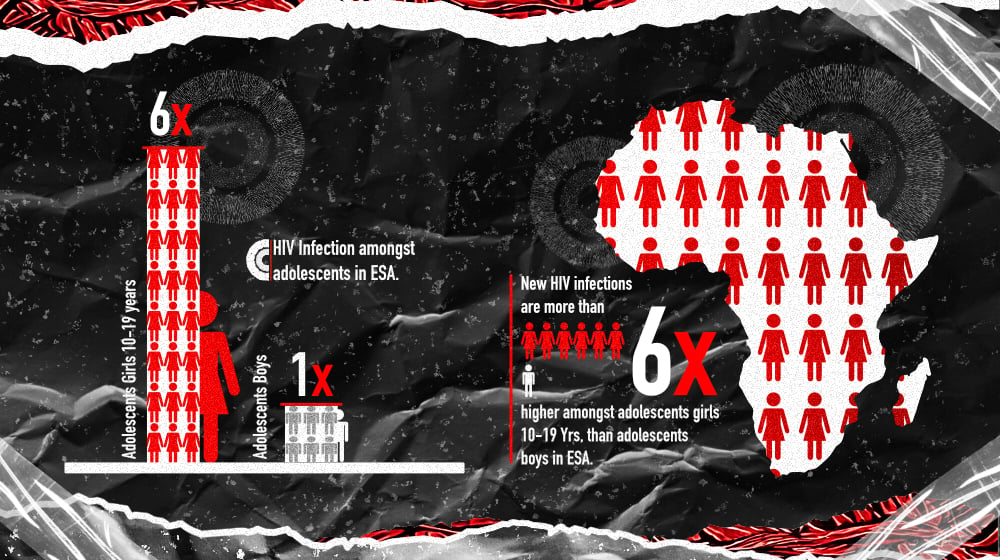
When it comes to sexual and reproductive health and rights in Eastern and Southern Africa, the numbers are stark. The region has some of the world’s highest rates of gender-based violence, adolescent pregnancy and remains the epicentre of the HIV crisis. Two-thirds of the global population of adolescents living with HIV reside in this region. New HIV infections are more than six times higher among adolescent girls (10-19 years) than adolescent boys in Eastern and Southern Africa.
But the headlines don’t often show the changes that are improving lives across the continent, and all too often, they do not profile the inspiring work of young people like Janeth, Caroline and Eric working to turn the tide for their communities.
As regional UN directors working in these areas we have travelled across Eastern and Southern Africa, hearing from the region’s most vulnerable. And while the figures on gender-based violence, unintended pregnancy, and preventable maternal deaths are far too high, we are left hopeful and inspired, knowing that change is possible. And it’s happening.
Take the 2gether 4 SRHR programme, for example, a collaboration between UNAIDS, UNFPA, UNICEF, and WHO, that works to advance sexual and reproductive health and rights (SRHR) for all in East and Southern Africa. In partnership with the Government of Sweden, the program has helped to improve the health and well-being of 640 million people since 2018.
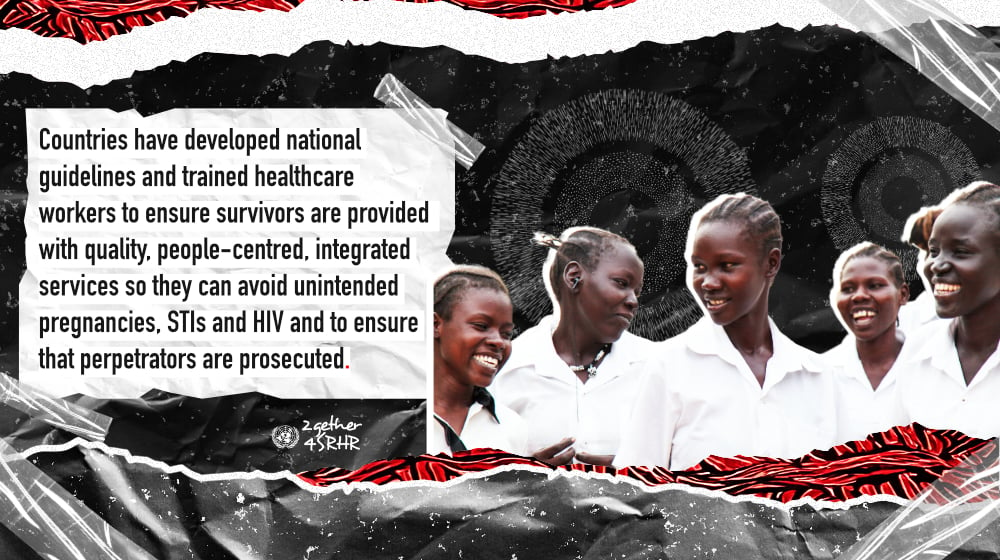
Countries have developed national guidelines and trained healthcare workers to ensure survivors are provided with quality, people-centred, integrated services so they can avoid unintended pregnancies, STIs and HIV and to ensure that perpetrators are prosecuted. This has led to better care and support for survivors, increased uptake of services, and better client retention.
However, when it comes to making a lasting impact, it is clear that investments are also needed to create enabling policies and laws. Thanks to partnerships with the East African Legislative Assembly (EALA), and the Southern Africa Development Community Parliamentary Forum (SADC-PF), there has been considerable progress in tracking and safeguarding the rights of women and girls and other groups at risk.
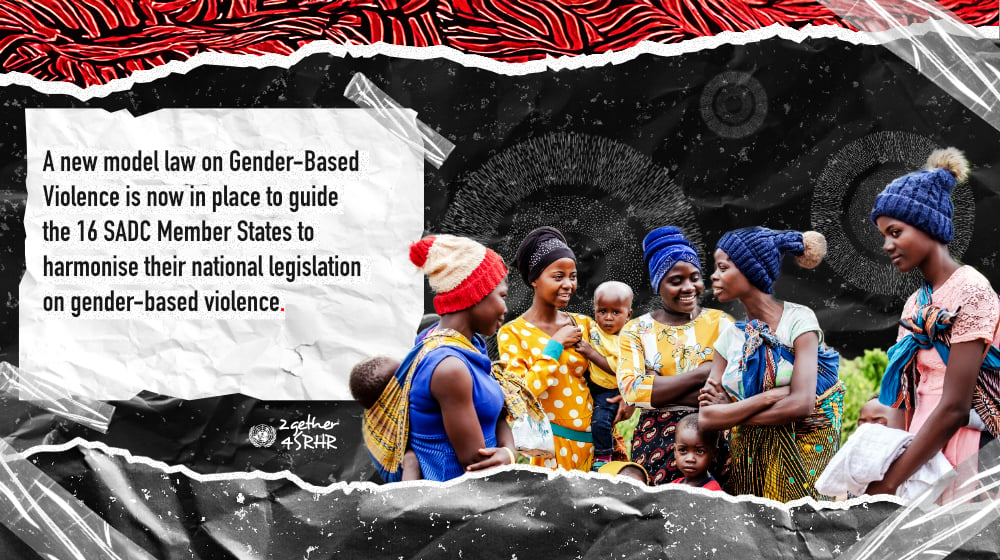
A new model law on Gender-Based Violence is now in place to guide the 16 SADC Member States to harmonise their national legislation on gender-based violence. This is a critical step for a region where 17% of girls and women have experienced sexual or physical violence by an intimate partner in their lifetime, and 8.6% have experienced sexual violence by a non-intimate partner. Eswatini, Lesotho, and Uganda have all passed laws that have strengthened provisions to deter sexual harassment, to protect survivors and ensure the prosecution of perpetrators.
Harmful social, religious, and cultural norms often reinforce patriarchal values, so we work directly with religious leaders, communities, and networks of influencers across the region. We engage men and boys in conversations about gender equality, positive masculinity and sexual and reproductive health rights.
With the 30th anniversary of the Beijing Declaration approaching and the SDG targets for gender-based violence and gender equality a mere six years away, the efficacy of partnerships and evidence-based programming is clear. We are all accountable for ending violence against women and girls once and for all.
Each step forward in addressing gender-based violence is driven by a story of bravery and demand for change, whether it be legislators, health care workers, and community activists such as Janeth, Caroline and Eric. During this 16 Days of Activism against Gender-based violence and beyond, we celebrate all the heroes who are driving progress.
—
Read the original article on the Programme's site. 2gether 4 SRHR is a Joint United Nations Regional Programme, delivered as one by UNAIDS, UNFPA, UNICEF, and WHO in partnership with Sweden. The programme supports governments across the region to track and improve SRHR trends, review and promote supportive laws, improve funding and implement responsive programmes.
For a one-stop-shop of information, research, data, and human interest stories on sexual and reproductive health and rights, visit the 2gether 4 SRHR Knowledge Hub: https://www.2gether4srhr.org/

